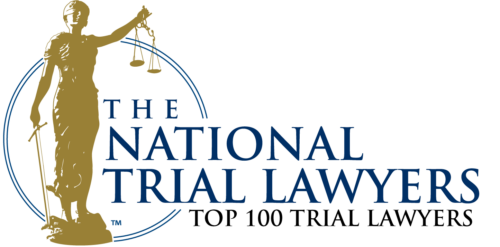After an accident, you should immediately get to a hospital for emergency treatment. While getting medical care is important, it is rarely cheap, and many accident victims struggle to keep up with bills.
If you were injured in a car accident because of another driver’s negligence, you should not have to pay for your medical bills. The big question is, who pays? You might have several legal options for financial compensation you can use to pay your medical bills. Insurance is often an option, but it is often insufficient or does not pan out. Instead, you can get a lawyer and sue the other driver who caused the accident and your injuries. Compensation from a lawsuit is based on economic and non-economic damages, and you need evidence to back up your claims. Suing for compensation can be challenging, but it might yield greater compensation than an insurance claim alone.
Our Pennsylvania car accident lawyers can help you sue the negligent driver who hit you if you call The Reiff Law Firm at (215) 709-6940 and schedule a free case review to get started.
Filing an Insurance Claim to Cover Medical Bills After a Pennsylvania Car Accident
Auto insurance is legally required for all drivers in Pennsylvania. In this state, drivers must adhere to no-fault laws and usually file claims with their own insurance providers regardless of who is at fault for the accident. Whether you are allowed to sue the other driver depends on your insurance policy and the extent of your injuries.
Your Personal Injury Protection Insurance
Since Pennsylvania is a no-fault state for auto insurance, drivers must carry personal injury protection (PIP) insurance, sometimes called liability coverage. Under the law, an injured driver can file a claim with their own PIP insurance rather than a third-party claim with the other driver’s insurance.
PIP insurance typically covers medical expenses after a car accident, at least up to the policy limits. While many injured drivers appreciate that they do not have to prove fault before getting financial compensation, they might still be left with unpaid bills if their medical costs exceed the policy limit. This is an unfortunately common problem for people with severe injuries after bad car accidents.
The Other Driver’s Auto Insurance
Sometimes, drivers must file a third-party claim with the other driver’s insurance. For example, if you are injured as a passenger in a car accident, and the driver in the car with you is uninsured, you might need to file a third-party claim with the other driver’s insurance. Alternatively, you might lack auto insurance because you do not drive and were injured in an accident as a pedestrian.
Getting compensation from the other driver’s insurance is possible but a bit more challenging than filing a PIP claim. With third-party claims, you typically need to prove the other driver’s fault, which might be difficult. If the other driver’s insurance company does not believe your claims, they might deny you coverage.
Health Insurance
Injured drivers often pay for their medical costs with a combination of auto insurance and health insurance. Your auto insurance policy will often cover your medical bills up to the policy limit. If you have unpaid excess costs, your health insurance may kick in and cover the rest.
While many injured drivers are fortunate to have both forms of insurance, many others are not. Many people do not have health insurance through their employer and cannot afford to buy it independently. In the event of an accident, they can only rely on auto insurance, which might not be enough.
Paying for Medical Bills with Compensation From a Car Accident Lawsuit in Pennsylvania
While insurance can be helpful for some, it falls short for many others or is unavailable. Perhaps your medical bills are so high that your insurance cannot come close to paying for everything. Maybe you were struck by an uninsured driver, and there is no insurance with which to file a claim. In situations such as these and many others, a lawsuit might be a great way to get compensation to pay your medical bills.
Damages
Our Pennsylvania car accident lawyers must first help you assess your damages to get compensation in a lawsuit. Remember, much compensation is on the line in a lawsuit, not just coverage for medical bills. While your medical expenses are certainly a large part of your overall damages, they may also include the cost of vehicle repairs and the income you lose from being unable to work after the crash.
You should also discuss how the accident affected you on a psychological or emotional level. Many injured victims express how traumatic the accident was and live with residual feelings of fear, anxiety, and depression long after the crash. For some, these feelings ripple across various aspects of their life and negatively impact their personal and professional lives. Although these painful experiences do not exactly come with a bill, you should be compensated.
Evidence
One of the hardest parts of your lawsuit that our team can help you with is finding evidence to prove your claims against the defendant. In a civil lawsuit, you must prove the defendant’s liability by a preponderance of the evidence, meaning it is more likely than not that the defendant is liable.
To meet this burden, we might need photos and videos from the accident scene. If you took pictures after the crash, or if there is security camera or dash cam footage of the accident, we can use these recordings to help prove your case.
We should also track down witnesses who saw the accident or have personal knowledge of details relevant to the accident. While witness testimony is sometimes skeptical, it can be very powerful, especially when witnesses have clear memories of the accident.
Contact Our Pennsylvania Car Accident Attorneys About How to Pay Your Medical Bills Now
Call our Pennsylvania car accident lawyers at The Reiff Law Firm at (215) 709-6940 about suing for compensation to pay for medical bills and to set up a free evaluation of your case.
Related Posts













